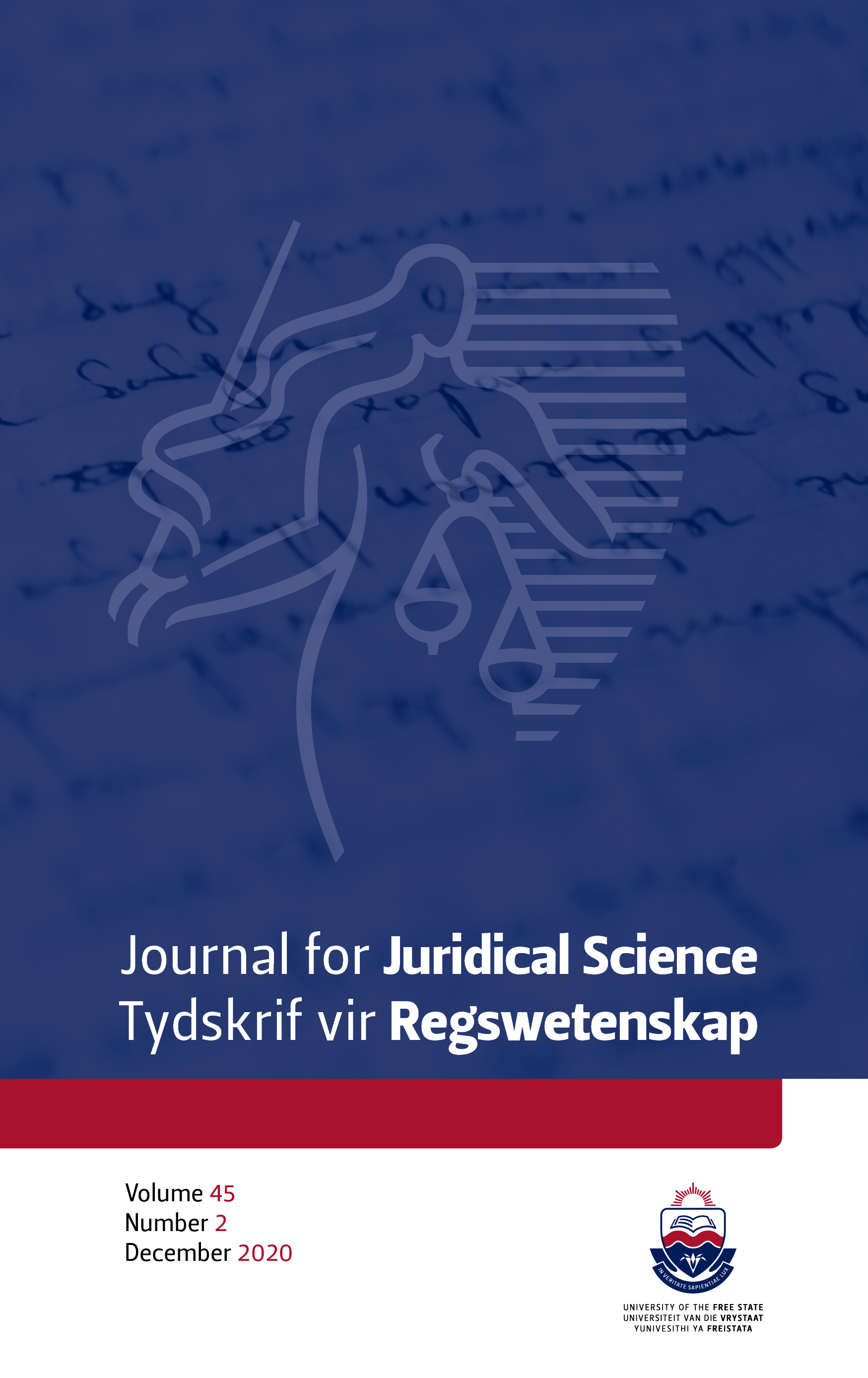A clash of rights in the legal and spatial planning contexts: The case of the Philippi Horticultural Area
DOI:
https://doi.org/10.18820/24150517/JJS45.i2.4Abstract
The Philippi Horticultural Area (PHA) is often referred to as Cape Town’s ‘food basket’, providing over one-third of Cape Town’s fresh vegetable produce. Located in the heart of the Cape Flats District, the PHA is surrounded by some of the poorest and most densely populated suburbs in the Cape Town metropolitan region. The agricultural area has come under increasing development pressure in recent years, caught in the midst of the ongoing battle between urban development and housing delivery, on the one hand, and the protection of agricultural activity, on the other. This article evaluates the arguments for and against the development of portions of the PHA against secs. 24-27 of the Constitution of the Republic of South Africa, 1996 relating to rights associated with the environment; property; housing; healthcare, food, water, and social security. The article seeks to determine whether a balancing of these rights can be achieved within the PHA, and whether portions of the PHA can be developed in a manner that protects and enhances the cultural and environmental integrity of the area, while also allowing urban development to accommodate new and existing communities. We argue that issues related to food security, environmental well-being, and access to land and development are inextricably linked and cannot be dealt with in isolation. Instead, a more holistic approach is needed, which takes a balanced view of these issues and embraces the spirit of the Bill of Rights (as contained in Chapter 2 of the Constitution) in an all-encompassing manner. Given that the PHA faces enormous challenges such as rampant crime, illegal occupation of land, and so on, we take the position that a balancing of rights is not only the most appropriate strategy for the PHA from a legal point of view, but also crucial to its very survival. We, therefore, argue that a symbiotic relationship must be cultivated between urban and agricultural land uses, through appropriate urban development articulated in a spatial framework that provides clarity as to how urban development can assist in protecting productive agricultural activity. In this way, the role of the PHA as Cape Town’s ‘food basket’ can be better conserved for current and future generations.
Downloads
##submission.downloads##
Published
Issue
Section
License
Copyright (c) 2020 Author(s)

This work is licensed under a Creative Commons Attribution 4.0 International License.




